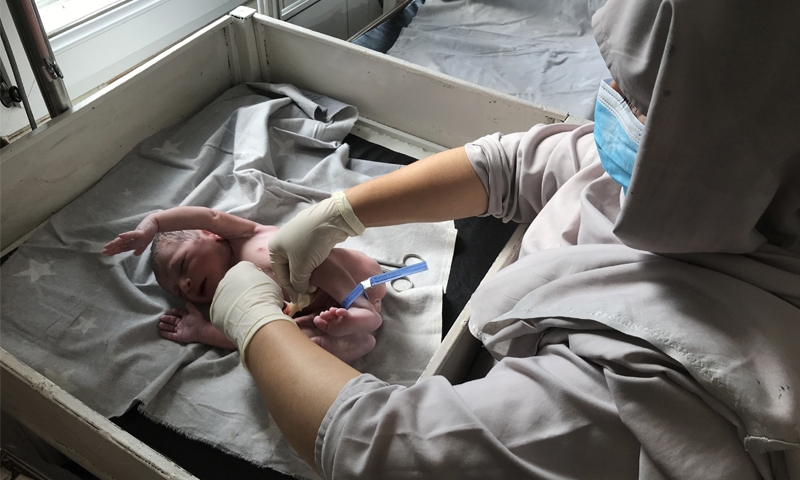Giving birth in Afghanistan
Khost : The mother was admitted at 9:30 am, the birth recorded at 9:35. Women often arrive in extremis at the Doctors Without Borders maternity hospital in southeastern Afghanistan, one of the most active in the world, with more than 60 babies born daily. The early hours of the morning are the most feverish for the hospital -- affectionately known by the NGO as “the baby factory” -- just a stone’s throw from Pakistan’s tribal areas, in Khost province. The Taliban are active in the region and roads are often dangerous after dark, so when 25-year-old Asmad Fahri felt her contractions begin at night she knew she would have to wait until daybreak to begin the three-hour journey to the hospital.
Finally she is resting, her infant tightly swaddled and asleep between her knees. On average new mothers are kept in the ward for six hours, but she has asked to leave after just three, to ensure she reaches home before darkness falls again. Sometimes the mothers have to travel for days, in pain and bleeding, over unpaved, insecure roads in carts or by whatever mode of transportation they can find. In an opposite wing, the delivery tables continuously welcome newcomers. Most only have time to lift the long layers of clothing hiding their bodies and wedge their coloured veils between their teeth, too rushed even to change into MSF’s standard red pyjamas.
The Khost Maternity Hospital (KMH) opened at the end of 2012 in a medical desert in the conflict-riven country with one of the highest infant and maternal mortality rates in the world. It was an overnight success, with nearly 12,000 deliveries in its first full year in 2013. By 2017 that figure had nearly doubled, to 23,000. This year the hospital is on track to deliver 24,000 babies, says Dr Rasha Khoury, a Palestinian gynecologist who is medical officer at the site.
If so that puts it within crying distance of the busiest maternity wards in the United States, where the Northside Hospital in Atlanta delivered 27,000 babies in 2016, the highest number in the country that year. “Here we are saving lives for free,” smiles Safia Khan, 24, the assistant manager of the midwifery team. Behind her, a young mother of twins searches her skirts and hands her a folded banknote. It is a traditional gesture of gratitude after delivery, at times required in some hospitals but politely declined here. “It’s forbidden,” insists Khan.
Related Posts

